Subject: RE: re your 6-29 DBR story; illegal disclosure/sale of arrest data by FDLE;
Date: Thu, 18 Jan 2007 16:01:36 -0500
From: "Julie Kay"
Thanks for your kind words. Yes, I knew about Channel 4 taking that story as well as the New York Times (did you see that one?) Guess I’m getting used to that from “the big boys.”
Look forward to reading your blogs.
Julie
_________________________________________________________________
I was pleased to see that January 29th's Daily Business Review, ran my Letter to the Editor titled "Privacy issues need to be addressed," an excerpted version of my January 18th letter to the DBR:
Subject: re your 6-29 DBR story; illegal disclosure/sale of arrest data by FDLE;
To: "Julie Kay" jkay@alm.com
CC: "Forrest Newman" fnorman@alm.com, "Donald J. Hayden" donald.j.hayden@bakernet.com, "Allan Sullivan" allan.sullivan@bakernet.com, "Effie Silva" effie.silva@bakernet.com
Thursday January 18th, 2007
Dear Ms. Kay:
My letter to you today is actually long overdue, as I had planned on congratulating you earlier, before the end of the year, on the consistently great job you did last year of covering what passes for the South Florida legal system in the Daily Business Review, and imbuing your stories with the proper amount of anger, enthusiasm and curiosity -and incredulity- for the peculiar way things have of sorting themselves out here, regardless of any actual law, statute or precedent.
Or, of course, common sense.
While much attention was paid to your recent stories on the 'missing' court records of judges/elected officials -and what passes around here for celebrities and VIPs- who surely must've preferred those records of theirs existing in some parallel universe, where the curious public couldn't discern their content, the story you wrote that most impressed me was actually your June 29th DBR story titled, "Legal Boomerang," on Broward County and the state of Florida continuing to sell expunged legal case data to private firms for their own databases, though they're not supposed to do so.
Perhaps you've already heard about it by this late date, but on the chance that you haven't, the day your story ran, CBS-4 led it's 6 p.m. Local News with that same exact story, down to the point of interviewing the very same person you interviewed for the majority of your insightful anecdotes, without reporter Mike Kirsch ever giving you or the Daily Business Review proper credit/attribution for the story.
I wrote a draft of a note to you about that slight that night on my computer, but I regret to say that I never finished it, much less mailed it, and for that I'm sorry, since I really hate seeing a reporter, esp. a TV reporter, get credit for hard journalistic leg-work they didn't actually perform.
That feeling became particularly ingrained in me during the 15 years I lived in D.C. from 1988-2003, because so many media friends of mine, esp. at the Washington bureau of the New York Times, who'd regale me at ballgames, movies or over hot dogs across the street from their office at a favorite hot dog stand of ours during breaks, with instances of having discovered, after-the-fact, clear-cut examples of out-of-town reporters using their stories as a paint-by-numbers primer for stories that small town reporters couldn't previously get a handle on.
Clearly, that's not the smartest move to make in the era of the Internet and search able databases.
For what it's worth, Kirsch added absolutely zero to your original story, not even bothering to supplement his version of your story with additional interviews with other parties, just to cover his bases.
Nope, it was strictly paint-by-numbers; your numbers.
Since that initial report back in June, I haven't taken anything Kirsch says seriously, since I now have a clear sense of what he's capable of.
Maybe he should stick to doing stories on 'hot' new celeb-filled boutiques or trendy restaurants on South Beach, that way, there's no real public harm or misrepresentation.
In the three years since I returned to South Florida from DC, I've had to reconcile myself to lots of changes to this area, many of them for the good, of course, but just as many for the bad I'm afraid.
Not that things before in local/state govt. or local legal circles were so rosy and on the level, of course, since I know that clearly wasn't the case.
To cite but one common sense example that I'm constantly dealing with, given the number of years that it was a living traffic hell, finally having a flyover at Biscayne Blvd. & NE 199th Street only proves that it should've been done years before there was the large population base in what is now Aventura, and what everyone in my part of NMB near 163rd Street, just called Turnberry.
Still, it's hard now to over-state how much better the traffic flow in that area is compared to what it was before, much less when there was no flyover or Lehman Causeway.
Not that it's a picnic now!
To me, one of the most unpleasant changes has been the dramatic loosening of local TV news journalism standards from when I was growing up down here in the '70's & early '80's, with anchors like Ralph Renick & Ann Bishop -or sharp folks like Gene Miller at The Miami Herald- who while perhaps considered cool and imperious to some viewers, to me always seemed to convey a real sense they DID have the viewer's best interests at heart, which was reporting the news straight up and letting the facts guide the story, rather than cover stories with hidden agendas, in order to appease the myriad business/ethnic/cultural interest groups, in both Miami and Ft. Lauderdale, who are STILL sensitive to even the slightest criticism, constructive or otherwise.
Renick and Bishop's success in achieving that goal was reflected by both their enduring popularity, and, I suppose, by the fact that people like me who grew up here, still bring their names up to suggest a sense of contrast with the sorry present state of affairs.
So with your own story, for instance, back then, reporters with a nose for news like Ike Seamans, Brian Ross, Susan Candiotti and a few other consistently enterprising types -so many of whom went national- would have at least had the good common sense to give proper credit or a hat tip to you and the DBR at the outset, before adding some additional facts and context to the story that were uniquely their own contribution.
It's shocking how many of the local TV reporters -excepting the exceptional few, like Glenna Milberg, Michael Putney and Michelle Gillen and a handful of others- now can't even be bothered to pretend to do that.
Then again, maybe after three years of being back here, I should stop being so easily shocked, huh?
Starting roughly around 1979, when I'd return to South Florida from school or work in Bloomington, Evanston, and DC, for visits during Christmas and spring break, or even Baltimore Oriole spring training trips or weekend weddings, I could still see that Miami had the kind of scrappy and innately curious reporters who make a real difference in a community.
Frankly, the sorts of reporters that so many of my friends at Ernie Pyle at IU and Medill at Northwestern aspired to emulate by making a positive contribution.
Reporters who had the talent & ability to convey to the waves and waves of newcomers to the area, who were without a sense of South Florida's very mixed past, the proper amount of perspective and sense of disbelief, before dropping the hammer on whichever corrupt/incompetent/miscreant elected pol or agency hack was the target zone, for attempting to perpetrate something of a dubious nature.
Even while watching the local TV news out of Indianapolis or Washington, D.C., while clearly recognizing that there were a handful of TV reporters of the sort who'd be good no matter what city they were based in, I always had the sense that, in general, the reporter culture in those cities lacked the kind of focused energy and zeal I'd seen down here, which was their town's loss.
(I even mentioned this particular thought of mine to CNN's Larry King once at an American Cancer Society Ball in DC, around '89, that I was involved with helping put on, with Larry being honored as the guest of honor.
While I know that many people often laugh at Larry's own unique brand of infotainment and news, that night at the Hilton Towers, while his then-wife and my date were being photographed with friends and various DC celebs like Al Haig and former FBI Director William Webster, Larry and I stood in a corner for about ten minutes or so reminiscing about Miami, mostly about local radio and TV personalities.
We talked back and forth about the great sense of competition that once existed among the Miami TV stations, and between the Herald and the late, great Miami News, where I had a number of friends in the sports and entertainment departments.
We lamented that the kind of rough but honest competition we both knew of down here, which really pushed reporters, often seemed lacking now, despite how counter-intuitive that seemed. And that was 17 years ago.)
But now? Well, it seems that the low TV standards that I saw elsewhere and have read about and followed for years in myriad media journals, blogs and newspapers, have found a home-sweet-home right here.
And as for my my own clearly antiquated and sentimental notions of what Channel 4's journalism is, based on years of Renick and his successors, and being part of Walter Mondale's advance team in '76 and accompanying him to their old studio downtown for an interview, where I recognized nearly every single reporter's face I saw in the hallway -and actually knew their assigned beat?
Well, I guess I thought the news management at Channel 4 had slightly higher standards for what's considered news and what passes for ethics than what appears to be the case.
C'est la vie.
Your June story dovetailed perfectly with the great DBR cover stories that your colleague Forrest Newman had last Monday, "Crusading for Confidentiality" -Activist Cathy Corry and others fight to block state disclosure of juvenile misdemeanor records- and last Tuesday, "FDLE sued over online access to juvenile arrest data", which to me, really calls into question many basic aspects of what the public should expect of the County Board and state legislature's oversight capacity, when it seems as if FDLE and individual counties can just wink at the law, as if they had a grandfather's clause permitting them to opt out of operating on the up-and-up.
Your colleague Forrest really lucked out by not only having a very compelling story, but one with a great hook at its heart, too, since nearly everyone with a semblance of a heart can understand it perfectly: the arrest record of a 13-year old girl who once (foolishly) shoplifted a can of Coke suddenly appearing online -with the state of Florida profitting from it- and her family's very reasonable fear that the online info about her will never truly disappear, thus branding their daughter forever.
I really commend the three attorneys at Baker & McKenzie for pushing back and putting the FDLE in their place, and demanding a degree of accountability from them that I have yet to see since I returned to South Florida.
I know I'm not the only resident of South Florida who thinks it's long overdue!
In the future, rest assured, you can definitely count on me to give you a a head's up if somebody else in South Florida's journalism fraternity tries to rustle up your ideas and word verbatim.
I'll do so via two new baby blogs that I hope to have up and running next week, which I hope you'll check out for yourself every now and then.
The first one, SouthBeachHoosier, http://southbeachhoosier.blogspot.com/ will focus on the very things that most concerned me when I was still living and working in Washington: national politics from a DLC point-of-view, business news and innovation, the world of entertainment with a focus on the business side of show biz, foreign policy, latest doings in South Beach and, of course, sports, with heavy emphasis on analysis of my Indiana Hoosiers, as well as the Hurricanes.
I'll also offer tons of heaping media criticism at some local/national people and organizations who've heretofore escaped both accountability & brickbats.
That will definitely be changing.
My second blog, HallandaleBeachBlog, http://hallandalebeachblog.blogspot.com/ which perhaps be of more interest to you, will be focused on South Florida public policy, and the sorts of of endemic cronyism, corruption and incompetency I see in local, county and state government on a regular basis in my part of Broward County, especially with regard to governance, public safety & development.
Not that I'll ignore any antics in Miami-Dade or the rest of the state.
In the past, an enterprising local TV reporter might've addressed these matters of concern to me, which while affecting tens of thousands of people on a daily basis, currently go unexamined.
Nowadays, that same reporter is assigned to go to a Mall and report on either holiday shopping tips or trends/fads among the seemingly endless armies of affluent teens of our area.
Maybe it's me, but I keep thinking of Jane Fonda's character in The China Syndrome, Kimberly Wells, forever banished to covering cute human interest stories before stumbling upon a great story by accident. At least WSVN/Channel 7's Deco Drive, one of my secret vices, is totally upfront about what it's reporting on, and doesn't put on airs.
Just to mention one story that cries out for examination, given the amount of tax money involved, how come the patently false financial numbers offered up by Nikki Grossman of the Greater Ft. Lauderdale CVB as proof of the financial impact on the area of hosting the Super Bowl, or even more egregious, the Orioles staying in Ft. Lauderdale for spring training?
They are never put up to anything even resembling basic fact-checking scrutiny, much less, oh, forensic accounting.
Before I go, let me relate a 9/11 anecdote that gives you some sort of insight into me, so you can consider the source of this letter.
As I mentioned earlier, I lived for about 15 years in DC, and while there, worked on behalf of some of the top law firms and business groups in town, doing all sorts of thing on both Capitol Hill and along the K Street corridor, and was fortunate to meet and befriend lots of very talented and impressive people.
On 9/11, I was working on a project for Crowell & Moring, in a wonderfully appointed office right across the street from the FBI & DOJ, and next to the Naval Memorial.
After the initial reports of the attack on the Pentagon, from our vantage point on the large patio overlooking Pennsylvania Avenue, we could see past the Old Post Office across the street, and could clearly see the smoke rising up from the Pentagon to our southwest.
Being equidistant to both the White House and the Capitol, once we got word to evacuate the building because a plane within range of DC still hadn't been accounted for -what we would all later all know as United Flight 93-I decided to forego playing the role of a sardine in a can on the Metro, and walked the 7-plus miles to my place in north Arlington, mostly via K Street.
When I got a few blocks away from the office and was near Metro Center, whom do you suppose I walked right into, but the one man, whom, IF things had fallen differently, might've played a much larger role that tragic day.
(FYI: As I walked and walked, it was while listening on my Sony AM/FM/TV portable radio, via ABC News' Good Morning America, that I first learned that some of the planes involved had departed out of Boston's Logan Airport. That news made my heart sink, and made the walk home seem far longer than it normally would, since one of my former housemates in Arlington, Jennifer Dugan, a sweet and adorable Univ. of Rhode Island grad, was a flight attendant for US Airways working out of Logan.)
That man was George Terwilliger, http://www.whitecase.com/gterwilliger
then of the DC office of McGuire, Woods, Battle & Boothe LLP, whom I knew from 1627 Eye Street, the location of the New York Times DC bureau, who's now at WhiteCase.
He's the person whom much of the Washington press corps thought was the likely first choice to be President Bush's FBI Director, and a person that many of my friends in the building had an enormous amount of respect and admiration for, even if they disagreed with him politically.
When I saw him in passing on the sidewalk, with a pensive look on his face, all I could think to myself was, "Be careful what you wish for!"
Sincerely,
Dave
____________________________________
Miami Daily Business Review
Legal boomerang
Julie Kay
June 29, 2006
In 1999, a 20-year old college student was arrested for petty theft in Miami-Dade County after stealing a shirt from J.C. Penney.
Like most first-time offenders, the young man completed a pretrial diversionary program, performed community service, paid a fine and got his case dismissed. The record was expunged. He never got into any more trouble with the law.
Seven years later, the man applied for a job and was turned down.
Curious about why, he checked his record on Westlaw, an Eagan, Minn.-based legal database company, and was shocked to find that the supposedly expunged record of his misdemeanor appeared on Westlaw's widely available computerized database. He immediately called his lawyer, Kenneth Hassett of Miami.
Hassett told the client, who did not want to be identified for this article, what he tells many of his clients who have called him with the same complaint - that the computerized record systems of the Miami-Dade clerk of courts, Florida Department of Corrections and Florida Department of Law Enforcement are "not secure" and that expungement has become meaningless.
"In the electronic and Internet age, sealing or expunging in many cases just doesn't exist," he said.
The Miami-Dade County Enterprise Technology Services Department sells criminal records information to four data mining companies, including Atlanta-based ChoicePoint, the largest provider of data information in the country. The other three are Seisent, Court Venture and First American SafeRent.
The records sold include daily electronic bulletins of jail bookings and a biweekly file of all defendants charged with felonies or misdemeanors, according to Ronald Feingold, a county systems analyst.
Miami-Dade Circuit Judge Stanford Blake, administrative head of the court's criminal division, said it is inappropriate for the county to sell information about cases that were supposed to be expunged.
"I don't think we should be in that business," Blake said. He urged any attorneys who have had this experience to call him.
Miami-Dade Chief Judge Joseph P. Farina Jr. did not return a phone call Wednesday seeking comment. But court spokeswoman Eunice Sigler said, "The 11th Judicial Circuit itself does not sell court records. We do not feel it is appropriate to comment on the alleged practices of another branch of government or governmental entity."
Miami-Dade Clerk of the Courts Harvey Ruvin declined to comment.
Responding to complaints
Hassett's client is not alone in encountering this problem of expunged records becoming public. Criminal defense attorneys, privacy rights experts and civil rights lawyers in Miami and elsewhere say they're increasingly concerned that data mining companies are obtaining and posting criminal records of juveniles and adults that were supposed to be expunged from official records.
"This is becoming a problem," Miami criminal defense attorney Michael Catalano said in a recent mass e-mail to members of the Florida Association of Criminal Defense Lawyers. "These companies know so much about our clients, so sealing and expunging does not mean it 'goes away.' Something needs to be done about this."
Feingold said he did not know whether data mining companies like ChoicePoint remove expunged or sealed files from their databases later. "We have no authority to force them to do that," he said.
John Shaughnessy, senior director of corporate communications at Westlaw, said that in Miami-Dade, Westlaw buys information about criminal records from a third-party "aggregate" company, which obtains it directly from the courthouse.
Some South Florida criminal defense lawyers and privacy rights experts expressed outrage over the release of supposedly expunged and sealed criminal records.
"This is extremely concerning," said Sherwin Siy, staff counsel at the Electronic Privacy Information Center in Washington, D.C. "A fundamental part of the justice system is the allowance of expungement as a chance for a clean start. If records are being sold to data brokers, that undermines that. There shouldn't be a stigma that follows your for the rest of your life."
"That is absolutely a violation of peoples' privacy rights and unconstitutional," said Lida Rodriguez, a partner at Duane Morris in Miami and a past president of the ACLU of Miami. "The county should not be selling records, especially expunged records, for a profit. This is another example of why the government cannot be trusted to keep records private, whether it be phone records or bank records."
But others say that, in the age of computerized data bases and the Internet, no one should have any expectation of privacy about their records. "You can never get rid of data," said Robert Jarvis, a law professor at Nova Southeastern University. "Anybody who thinks that information once created goes off and dies is kidding themselves."
Juvenile records at risk
Under Florida statute, first-time offenders committing misdemeanors and certain nonviolent felonies such as third-degree theft can enter a pretrial diversion program. After attending classes, paying a fine and sometimes performing community service, a defendant can ask the judge to dismiss the case and expunge his or her criminal record. The request is usually granted.
Files can also be sealed - which means they are not destroyed but stored by the clerk's office and closed with tape - if a first-time offender enters a plea and the judge withholds adjudication.
Expunging or sealing records are thought of as ways to wipe the slate clean for young people who get into minor legal scrapes such as marijuana possession, petty theft or vandalism. Expungement means that the stigma of having a criminal record does not follow them throughout their lives and hurt their chances of finding employment, obtaining credit, getting a lease or a mortgage, or even gaining U.S. citizenship.
All states have similar provisions for expunging criminal records. But Florida's open records laws give data mining companies greater access to more records than they have in other states, said Carlos Martinez, Miami's chief assistant public defender.
Criminal defense lawyers say they are increasingly hearing from clients who complain that even though their cases were officially expunged, they are being repeatedly turned down for jobs on the basis of their criminal records . When the clients check their history on legal databases such as Westlaw, they discover that their criminal record still shows up.
Carlos Martinez, the Miami-Dade chief assistant public defender, said the problem has grown in the last six months as employers and landlords increasingly turn to database companies such as ChoicePoint and Westlaw for background checks. Both he and Hassett have met with court and county officials in an effort to resolve the problem.
The problem, according to the two defense lawyers, is that while the clerk of the courts is the official keeper of court files, the county has won the battle to become the keeper of electronic court records.
Martinez said he's particularly concerned about the security of juvenile records, and his office is proposing state legislation to maintain the privacy of those records. The bill did not make it out of committee this year.
Some attorneys are considering a different way to solve the problem - through class action litigation. Strategy sessions have been held and the lawyers are looking for a good defendant to lead the class, someone who was injured by the incorrect posting of expunged records on a data base.
Companies respond
Miami criminal defense attorney David Edelstein said he has come up with an effective way of dealing with expunged criminal cases that show up on ChoicePoint databases. He faxes the court expungement order to ChoicePoint and the company removes all criminal references for that individual. "They've been cooperative," he said.
In the case of Hassett's 20-year-old client, however, Hassett said Westlaw refused to change its record without getting a verification of the expungement directly from the court.
Westlaw's Shaughnessy said that if a person has a complaint about an expunged record showing up in the Westlaw database, the person should call Westlaw, which will remove the information provided there is "reasonable confirmation," such as the judicial expungement order.
Mitchell Gersten, business information officer of data services for ChoicePoint, said his company collects criminal records from two sources around the country - the administrative office of the courts and departments of corrections. In some counties around the country, the company pays for the information, while in other counties the information is freely available, he said.
Gersten acknowledged some problems arising from delays in receiving updated information from courts, including information about expungements. "It takes a period of time, depending on the court, for the changes to roll up to us," he said. "There are definitely inefficiencies or cases where the courts do not communicate effectively."
For that reason, he said, ChoicePoint has established a formal consumer dispute process by which individuals can contest information on their records. ChoicePoint promises to quickly investigate the matter and correct any errors. But by then, damage can already be done.
ChoicePoint spokesman Chuck Jones acknowledged that the company has been sued by individuals who claimed they suffered damage as a result of inaccurate criminal background information provided by ChoicePoint. He did not provide details on the cases.
Until a solution is found, attorney Michael Catalano said he counsels clients that in applying for jobs, apartment leases, or any filling out any applications that ask for an arrest record, they should probably disclose any arrest - even if the case record was expunged.
"In the days before the Internet, they could tell people they were never arrested," he said. "But today, the rule is to disclose."
Editor's note: Westlaw, a subject of this story, and ALM Media Inc., parent of the Daily Business Review, recently entered into a five-year content exchange agreement.
Julie Kay can be reached at jkay@alm.com or at (954) 468-2622.
COPYRIGHT 2007 American Lawyer Media L.P.
_________________________________________________
Miami Daily Business Review
FDLE sued over online access to juvenile arrest data
Forrest Norman
January 9, 2007
A Miami couple is asking a judge to force the Florida Department of Law Enforcement to remove their teenage daughter's arrest record for stealing a can of Coca-Cola from its publicly accessible, online database.
The record details the Oct. 15, 2006, arrest of then 13-year-old G.G. for shoplifting. It was the girl's first arrest. Her parents' names were not included in the complaint.
The complaint, filed in Miami-Dade Circuit Court by attorneys Don Hayden, Allan Sullivan and Effie Silva of Baker & McKenzie in Miami, asks for a declaratory judgment stating that FDLE's publication of the arrest record is a violation of a Florida statute requiring that minors' misdemeanor records be kept confidential. The suit also seeks a writ of prohibition preventing the agency from publishing or selling the record.
"The defendant's act of selling the juvenile's criminal record has harmed her as a result of being made public to anyone willing to pay a fee to acquire the information and will continue to cause harm to the juvenile by jeopardizing her future with respect to job applications, college admissions, and her credit ratings," the complaint states.
"Once it's out there, it's out there, and that can permanently harm someone's life," Hayden said in an interview. "No one is arguing that violent criminals or juveniles should be coddled. But this little girl is accused of stealing a soda, which she may not even have done."
FDLE spokeswoman Heather Smith wrote in an e-mail to the Daily Business Review that FDLE received $52.7 million from fees for criminal histories. "The fees are established by state statute and they go to support the cost of operating that program area (receiving, reviewing, compiling, maintaining, sealing/expunging, updating and disseminating criminal history records)," Smith wrote. She declined to comment on the suit.
FDLE publishes and sells juvenile criminal histories on its Internet site, along with criminal records of adults. As reported Monday in the Daily Business Review, the Miami-Dade County public defender's office is challenging the publication of juvenile misdemeanor information.
Florida Statutes Section 985.04(2) generally makes juvenile criminal records confidential unless the minor is arrested on a felony or has three or more misdemeanors.
If the court rules in favor of the plaintiff, FDLE could be forced to change the way it handles juvenile criminal records, Hayden said.
FDLE officials, however, defend their public disclosure of juvenile misdemeanor records. In a letter to the Miami-Dade Criminal Justice Council in October, FDLE general counsel Michael Ramage argued that "all juvenile criminal history information compiled or maintained by FDLE is a public record under Florida law regardless of whether the criminal history information pertains to a felony or a misdemeanor."
He cited Section 943.053(3)(a), which generally says that criminal histories provided by other Florida law enforcement agencies to the FDLE are public information and that FDLE can sell that information. Some employers also want access to such information on the grounds that it is valuable in doing employee background checks.
The Miami-Dade public defender's office has drafted legislation to block publication of juvenile misdemeanor records. Carlos Martinez, the chief assistant public defender in Miami, said FDLE's practice of posting juvenile arrest records on their Web site and selling them for $23 is in conflict with Florida law.
Traditionally, since the first juvenile court was started in Chicago in 1899, juvenile proceedings and court records were kept confidential. The philosophy was that juveniles were children who needed treatment and rehabilitation in order to become productive, law-abiding adults. Therefore, the thinking went, they should not be punished or stigmatized for their juvenile misconduct.
In Florida, juvenile court proceedings still are kept confidential, and most news media outlets generally refrain from publishing the names of juveniles charged with crimes.
But as public fears about violent crimes committed by juveniles mounted in the 1980s and 1990s, some of those protections have been rolled back. Criminal histories and arrest records of juveniles accused of violent crimes are public records in most states. In Florida, state law mandates that records of juveniles charged with felonies or three or more misdemeanors are public record.
Hayden, a partner at Baker & McKenzie whose firm is handling the case pro bono, said it's important to keep such misdemeanor records off FDLE's online database. Once such records are posted online, they are hard to eradicate from the Internet even if they are officially expunged by a court. "FDLE is way off on their interpretation of the law on this, and it has real effects on people's lives," he said.
Martinez argues that there is too much information about juvenile records publicly accessible on the FDLE database.
"We have to always remember that we're talking about kids, some of whom may be refused jobs, school loans, housing or credit because of minor infractions committed as juveniles," he said. "We don't agree with FDLE about what they can make public and sell when it comes to juveniles."
Forrest Norman can be reached at (305) 347-6649.
COPYRIGHT 2007 American Lawyer Media L.P.
_________________________________________________
Miami Daily Business Review
Crusading for confidentiality
Forrest Norman
January 8, 2007
Cathy Corry of Tampa heard that a young relative had been turned down for a job after an employer ran a background check and came across the family member's juvenile misdemeanor arrest years earlier.
Corry searched through the Florida Department of Law Enforcement's online public records data base three years ago and quickly found other misdemeanor records of juveniles. One record she found listed the criminal history of a boy who had been convicted of shoplifting at 13 and presenting false identification to police when he was 14.
Florida Statutes Section 985.04(2) generally makes juvenile criminal records confidential unless the minor is arrested on a felony or has three or more misdemeanors.
"This kid did two stupid things when he was a young teenager, and now that information is out there for any prospective employer or landlord," said Corry, who has since started a juvenile rights advocacy group. "You would not believe how easy it was to get criminal histories for kids with minor misdemeanors."
For a $23 initial charge, plus $8 for each additional search, anyone can peruse the criminal history data base maintained by the Florida Department of Law Enforcement (www.fdle.state.fl.us/CriminalHistory) and buy a copy of an individual's state criminal record. Searching on a name, or keying in a racial group, age or gender selection, you can mine a lot of data about people charged as juveniles with minor offenses.
A quick search of the FDLE data base by the Daily Business Review turned up records for a 14-year-old from Jacksonville charged with two misdemeanors.
Critics including Carlos Martinez, Miami-Dade County's chief assistant public defender, say the public disclosure of juvenile misdemeanor records is wrong and should be stopped. They say it's another example of the growing problem of juveniles and adults being stigmatized by the online posting of their criminal records.
The Daily Business Review reported last June that large data mining companies are obtaining and posting criminal records of juveniles and adults that were supposed to be expunged. Anyone in possession of such a record is under no obligation to destroy it after the courts have expunged it.
But others argue that the public has a right to know about all criminal records, for its own protection. Mark Cheskin, a labor and employment attorney at Hogan & Hartson in Miami, said many employers would want to know about juvenile criminal records. He said arrest records and criminal histories "can show patterns that reveal lifestyle choices."
Nevertheless, Martinez and his boss, Miami-Dade Public Defender Bennett Brummer, have proposed broad legislation that would block FDLE from releasing juvenile misdemeanor information. It also would require the agency to automatically expunge criminal records from its data base for juveniles who reach adulthood with no pending cases. Martinez said state Sen. Frederica Wilson, D-Miami Gardens, has agreed to sponsor the legislation. Wilson did not return calls for comment.
FDLE officials, however, defend their public disclosure of juvenile misdemeanor records. In a letter to the Miami-Dade Criminal Justice Council in October, FDLE general counsel Michael Ramage argued that "all juvenile criminal history information compiled or maintained by FDLE is a public record under Florida law regardless of whether the criminal history information pertains to a felony or a misdemeanor."
He cited Section 943.053(3)(a), which generally says that criminal histories provided by other Florida law enforcement agencies to the FDLE are public information and that FDLE can sell that information.
FDLE spokeswoman Heather Smith said anyone can purchase individual juvenile criminal records via the FDLE Web site. Purchasers may include data mining companies, prospective employers, condominium associations, and worried parents checking out their daughter's new boyfriend.
"We don't have any deals with companies that do background checks," Smith said. "Anyone who goes on our Web site to search criminal histories pays $23, with additional charges for additional searches."
But Martinez argues that there is entirely too much information about juvenile records publicly accessible on the FDLE data base. "We have to always remember that we're talking about kids, some of whom may be refused jobs, school loans, housing or credit because of minor infractions committed as juveniles," he said. "We don't agree with FDLE about what they can make public and sell when it comes to juveniles."
House Democratic leader Dan Gelber of Miami Beach, a former federal prosecutor in Miami, agrees with Martinez that there is a problem. "We need to clarify that in the Legislature," Gelber said. "There are 16-year-old hardened criminals, no matter what people say, and the public has a right to know some information about them. But there is also the question of permanently damaging a young life over a minor offense."
House Speaker Marco Rubio, R-Miami, did not return calls for comment by deadline. Neither did the office of Gov. Charlie Crist.
One family plans to file suit against FDLE in Miami-Dade Circuit Court on behalf a minor daughter who was arrested for stealing a can of Coca-Cola, according to the family's attorney, Don Hayden of Baker & Mackenzie in Miami. The family did not want to be identified prior to filing the suit.
Confidentiality principle 'inviolate'
Traditionally, since the first juvenile court was started in Chicago in 1899, juvenile proceedings and court records were kept confidential. The philosophy was that juveniles were children who needed treatment and rehabilitation in order to become productive, law-abiding adults. Therefore, the thinking went, they should not be punished or stigmatized for their juvenile misconduct.
In Florida, juvenile court proceedings still are kept confidential, and most news media outlets generally refrain from publishing the names of juveniles charged with crimes.
"It's a philosophical principle, really," said Miami-Dade Circuit Senior Judge Seymour Gelber, father of Rep. Gelber. The judge led the juvenile division for 20 years. "The idea of keeping most juvenile proceedings and records confidential is inviolate."
Judge Gelber, who is writing a book on the history of the juvenile justice system in Miami-Dade, said societal attitudes toward juvenile offenders have changed over the last 25 years. The shift was driven by headline-making violent crimes committed by juveniles in Florida and other states.
"The era of the violent juvenile came into being in the '70s and '80s, and the protection of the child was subsumed by the protection of the community at that point," Judge Gelber said.
"The sentiment is receding for the protections traditionally afforded juveniles in the justice system," agreed Bernard Perlmutter, a University of Miami law professor who heads the school's Children and Youth Law Clinic.
Perlmutter said "there has been a retrenchment in the policies of the juvenile justice system, which used to be based on rehabilitative and therapeutic measures. Now there is overall a feeling that we should not differ too much between children and adults when it comes to prosecuting crime, and I suppose that extends to recordkeeping as well."
Rep. Gelber said the juvenile justice system has to balance two conflicting missions. "There is rehabilitation, and then there is seek and destroy," he said. "And the increased fear about violent crime only increases the tension between those two missions."
But Hogan & Hartson's Cheskin said juvenile misdemeanor information can be valuable to employers, particularly in assessing younger candidates.
"If I'm looking to hire a 50-year-old for an office job and he got busted for some misdemeanor when he was 15, I probably won't factor that in," Cheskin said. "But say I'm hiring an 18- or 19-year-old who'll be going into people's homes to repair ovens or install phones. Suddenly criminal records from his or her recent past become very relevant."
'Youthful indiscretions'
Cathy Corry counters that disclosing juvenile misdemeanor records "is part of what we've done as a society to criminalize these kids for actions that years ago would have been considered youthful indiscretions."
Five years ago, she started the nonprofit group Justice4Kids.org to advocate for the rights of minors in the juvenile justice system.
After finding the record on the FDLE Web site of the boy who had shoplifted and presented false ID to the police, Corry engaged in a lengthy e-mail exchange with FDLE officials about her discovery. Eventually, the agency conceded the records should not have been publicly accessible on the site.
"They said they removed them, but that seems like a piecemeal approach to a much larger problem," she said. "They have a mass of electronic records, and they don't seem to have a systematic way of culling the information that's not supposed to be public."
For Corry, the larger problem is the changing political and social attitudes toward juvenile offenders, and how that impacts young people who have made mistakes and learned from them.
"That's not to say that it's a good thing to be arrested with a joint of marijuana or to shoplift a candy bar," she said. "But once you've been processed through the justice system, should those things keep you from getting jobs or housing for the rest of your life?"
Forrest Norman can be reached at (305) 347-6649.
COPYRIGHT 2007 AMERICAN LAWYER MEDIA L.P.
______________________________________
Miami Daily Business Review
Off the record
January 8, 2007
How a proposed bill would change criminal records policies for juveniles
* Juvenile arrest records for both misdemeanor and felony cases could not be sold.
* The Florida Department of Law Enforcement could not make juvenile misdemeanor arrest information public.
* Fingerprints of juveniles would be maintained in a noncriminal data base until a plea or a finding of guilt. The FDLE would be allowed to submit juvenile fingerprints and arrest information to the national criminal history data base only after juveniles are convicted or plead guilty or no contest to a felony.
* Records of all resolved juvenile arrests would include disposition information.
* Juvenile records would be automatically expunged from FDLE and local online court records when juvenile court jurisdiction ends if the youth has no pending juvenile or criminal cases and is not serving a sentence.
Source: Miami-Dade County Public Defender's Office
COPYRIGHT 2007 American Lawyer Media L.P.















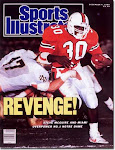



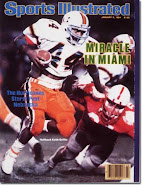
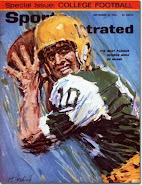





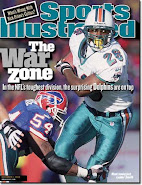








+Sep+10,+1984.jpg)







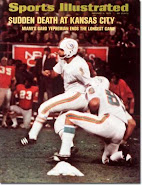


No comments:
Post a Comment